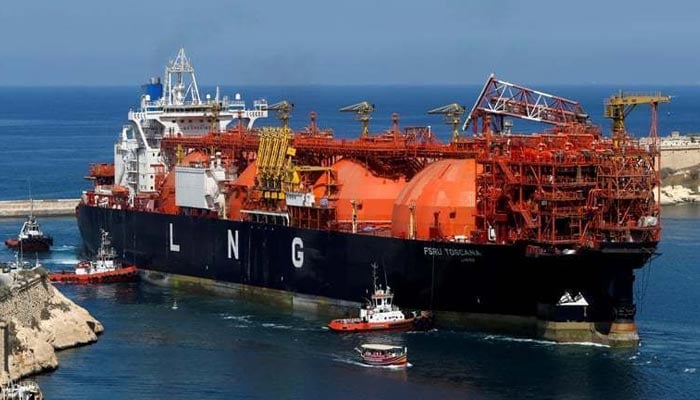Energy crisis looming: No bid submitted for import of 72 LNG cargoes
October 03, 2022

- PLL had invited bids for 72 LNG cargoes during 2023-2028 window.
- Not even a single bid was received on the last date.
- Analyst says traders say they’re hesitant to supply fuel to Pakistan.
The ongoing energy crisis is likely to continue after the country’s purchaser of Liquefied Natural Gas (LNG) failed to receive a single offer for its 72 cargoes for six years, Pakistan LNG Limited (PLL) confirmed Monday.
In August, PLL — a wholly-owned subsidiary of Government Holdings Private Limited (GHPL) — invited bids for 72 LNG cargoes from international suppliers during the 2023-2028 window but not even a single bid was received on the last date of submission and opening of these bids.
Well-placed sources in Petroleum Division told Geo News that Pakistani authorities made all-out efforts to procure LNG cargoes. First, it is not found and later it gets expensive.
It should be noted that Pakistan is currently importing nine cargoes of LNG under monthly long-term contracts, of which eight are from Qatar and one is from ENI, an Italian multinational oil and gas company headquartered in Rome.
Sharing a picture of the official document on Twitter showing no bid was received, energy analyst Stephen Stapczynski wrote: “Pakistan was unable to secure long-term LNG supply, threatening to prolong its fuel shortage.”
He mentioned that no supplier participated in Pakistan’s tender to buy LNG for four-six years from 2023. “Deadline was today…this highlight how there is little spare LNG supply until at least 2026,” the analyst wrote.
Stapczynski, in a series of tweets, warned that this lack of near-term LNG supply is a major threat to the emerging world. “Suppliers are reluctant to sell to emerging nations[…] traders previously said they’re hesitant to supply fuel to Pakistan on concerns the plunging rupee hampers the country’s ability to pay.












